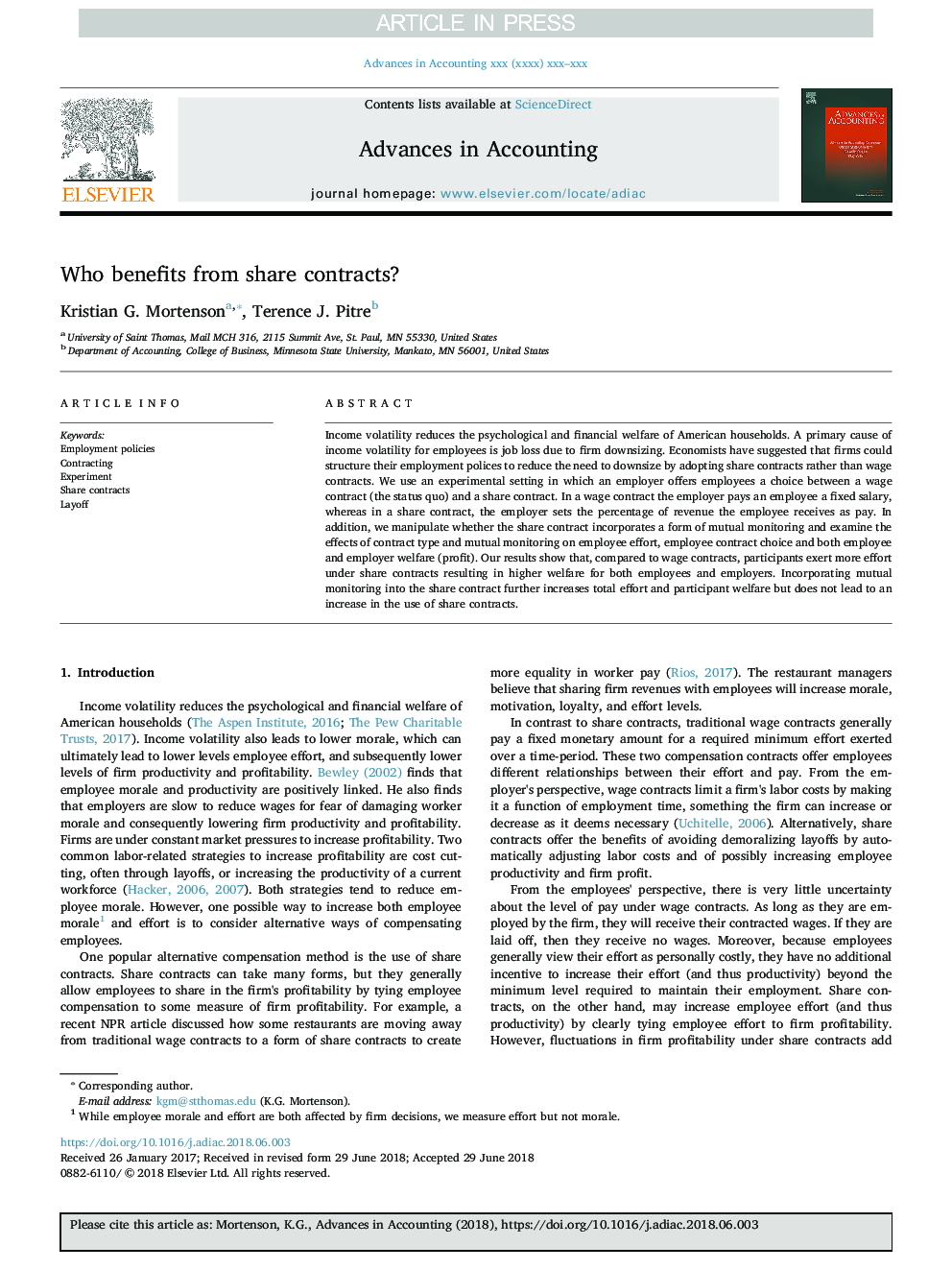| Article ID | Journal | Published Year | Pages | File Type |
|---|---|---|---|---|
| 8960796 | Advances in Accounting | 2018 | 11 Pages |
Abstract
Income volatility reduces the psychological and financial welfare of American households. A primary cause of income volatility for employees is job loss due to firm downsizing. Economists have suggested that firms could structure their employment polices to reduce the need to downsize by adopting share contracts rather than wage contracts. We use an experimental setting in which an employer offers employees a choice between a wage contract (the status quo) and a share contract. In a wage contract the employer pays an employee a fixed salary, whereas in a share contract, the employer sets the percentage of revenue the employee receives as pay. In addition, we manipulate whether the share contract incorporates a form of mutual monitoring and examine the effects of contract type and mutual monitoring on employee effort, employee contract choice and both employee and employer welfare (profit). Our results show that, compared to wage contracts, participants exert more effort under share contracts resulting in higher welfare for both employees and employers. Incorporating mutual monitoring into the share contract further increases total effort and participant welfare but does not lead to an increase in the use of share contracts.
Related Topics
Social Sciences and Humanities
Business, Management and Accounting
Accounting
Authors
Kristian G. Mortenson, Terence J. Pitre,
